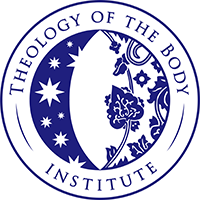

Encountering the Father’s Heart of Saint Joseph
Encountering the Father’s Heart of Saint Joseph

The 150th anniversary of the proclamation of Saint Joseph as Patron of the Universal Church was celebrated on the Solemnity of the Immaculate Conception this month. In honor of that anniversary, Pope Francis declared this liturgical year to be dedicated to Saint Joseph through his apostolic letter Patris Corde (“With a Father’s Heart”). What a gift to the Universal Catholic Church to have a year dedicated to the fatherhood of Saint Joseph!
In Pope Francis’ apostolic letter, he expounds upon the qualities of Saint Joseph’s fatherhood and how his fatherhood was an icon of God, the Father’s heart for us, His children. During this Advent season and during this Year of St. Joseph, may our hearts be led to reflect upon the Father through the fatherhood of St. Joseph!
Saint Joseph is a beloved father. Saint Joseph placed himself at the service of his vocation as husband and father. “He turned his human vocation to domestic love into a superhuman oblation of himself, his heart and all his abilities, a loved placed at the service of the Messiah who was growing to maturity in his home” (PC, 1).
Reflection: How can I grow in my devotion to the fatherhood of St. Joseph?
Saint Joseph is a tender and loving father. Through Saint Joseph’s fatherhood, Jesus saw the tender love of God. Joseph taught him how to walk and offered him his loving embrace when he fell. Joseph teaches us to tenderly look upon our falls, weaknesses, and poverties. “The evil one makes us see and condemn our frailty, whereas the Spirit brings it to light with tender love. Tenderness is the best way to touch the frailty within us” (PC, 2).
Reflection: How can I open my heart to encounter the tender love of the fatherhood of St. Joseph? Where are the places of healing in my own heart that need his tender love?
Saint Joseph is an obedient father. In every message from the Father, Saint Joseph did what was asked of him. “In every situation, Joseph declared his own ‘fiat’, like those of Mary at the Annunciation and Jesus in the Garden of Gethsemane” (PC, 3).
Reflection: Where are the places in my heart where I struggle to follow the way of the Lord? How can St. Joseph’s obedience help me to be open and follow the way of the Lord?
Saint Joseph is an accepting father. Joseph trusted in angel’s words to him and lovingly accepted Jesus as his own son. He provided a protective home for Mary and Jesus and accepted his call to be a husband to Mary and a father to the Son of God, even when he believed himself unworthy to do so. “Joseph’s attitude encourages us to accept and welcome others as they are, without exception, and to show special concern for the weak, for God chooses what is weak” (PC, 4).
Reflection: Where are the places in my life and in my heart were I struggle to accept my own weaknesses and poverties and those of others? How can Joseph’s accepting fatherhood be a witness to me of acceptance of myself and others?
Saint Joseph is a creatively courageous father. God entrusted the Holy Family to Joseph and worked through his creative courage to guide and protect the Holy Family. “Arriving in Bethlehem and finding no lodging where Mary could give birth, Joseph took a stable and, best he could, turned it into a welcoming home for the Son of God come into the world” (PC, 5).
Reflection: How can Saint Joseph help me to see the little I have to offer the Lord is still valuable in His eyes? How can the Lord use the little I have to offer to bring something beautiful into the world?
Saint Joseph is a working father. Work is a means of participating in the work of salvation. Joseph’s work as a carpenter provided a means for the Holy Family to thrive and to remain hidden in Bethlehem. Joseph taught this work to Jesus. “Saint Joseph’s work reminds us that God himself, in becoming man, did not disdain work” (PC, 6).
Reflection: How is my work participating in my salvation and the salvation of others? What needs to change in the experience of my work that could bring deeper expression to the virtue and value of work?
Saint Joseph is a father in the shadows. Saint Joseph’s fatherhood was a hidden fatherhood that he had to learn how to live. “Fathers are not born, but made. A man does not become a father simply by bringing a child into the world, but by taking up the responsibility to care for that child. Whenever a man accepts responsibility for the life of another, in some way he becomes a father to that person” (PC, 7).
Reflection: How am I open to learning what it means to be a man or a woman? What obstacles exist in my heart that keep me from being open to the healing I may need in my masculinity or femininity?
At the conclusion of the apostolic letter, Pope Francis echoes the words of Pope Saint John Paul II’s teaching on the spousal meaning of the body – when a man or a woman makes a fruitful gift of self, they fulfill the very meaning of their being and existence – when he writes of Saint Joseph’s giving the gift of self to Mary and Jesus. “Joseph found happiness not in mere self-sacrifice but in self-gift… Every true vocation is born of the gift of oneself, which is a fruit of mature sacrifice” (PC, 7).
During this year of Saint Joseph, may he guide your heart to live a life of fruitful self-giving! Please join the TOBI family in the 44-day Consecration to Jesus through Saint Joseph: An Integrated Look at the Holy Family, written by Dr. Greg Bottaro and me. The preparation will begin on March 19 (Feast of St. Joseph) and end on May 1 (Feast of St. Joseph the Worker). The book is just $5. Please visit the TOBI store for more details!



